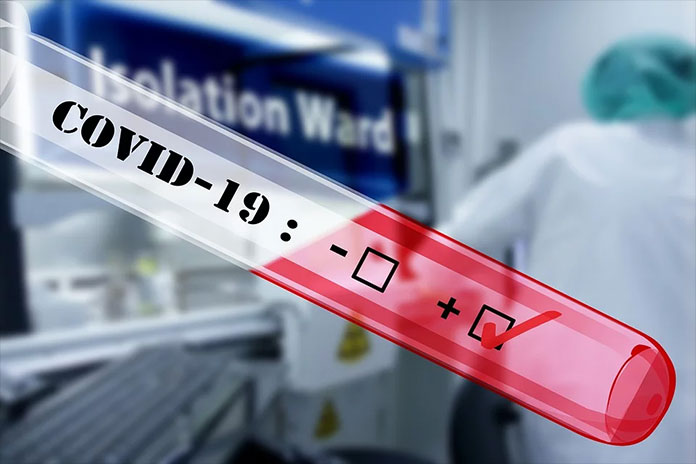
NEW JERSEY – People are still very concerned about COVID-19 and want to get tested, but state officials warn that there are companies out there offering false or misleading claims regarding testing.
“As public access to COVID-19 and COVID-19 antibody testing increases, so do opportunities for unscrupulous individuals to make money by exploiting people’s confusion and fears,” said Attorney General Gurbir S. Grewal. “We’re urging consumers to do their homework, understand the types of tests being marketed, and recognize what those tests can and cannot do, so they don’t fall victim to false promises and outright scams.”
Some of these companies are otherwise legitimate small businesses who are incorrectly stating information about the tests. Some are outright scammers, the state said.
Some people are trying to sell tests that haven’t been approved by the U.S. Food and Drug Administration because they may not provide accurate results. Some people are going door-to-door performing fake tests for money, and some are offering free test kits in exchange for people’s personal and health insurance information.
There are also reports that scammers posing as contact tracers are texting New Jersey residents with messages saying they came in contact with someone who had COVID-19. The text messages ask people to follow links and then try to get them to reveal their personal information.
Two recent businesses were sent cease-and-desist letters because of claims made claims in the sale of antibody, or “serological,” tests for COVID-19. One was a health club in Morris County and the other is a dentist in Passaic County.
Antibody testing differs from diagnostic testing in that antibody testing is intended to determine if you possess antibodies to the SARS-CoV-2 virus that causes COVID-19, which indicates past exposure to the virus. Diagnostic testing is intended to determine if you currently have the disease.
One claim was that the serological test can determine “if someone has already contracted the virus and, thus, has developed the antibodies to prevent contracting it again.” The statement appears misleading, according to the attorney general’s office, because a person may have contracted the virus but not yet developed antibodies that would result in a positive antibody test, and because it has not been established whether the presence of COVID-19 antibodies conveys immunity, and, if so, for how long.
In another claim, the presence of a particular antibody would mean a patient is “now clear, they have the antibody, they’re safe.”
The statement appears misleading because it has not been established whether the presence of COVID-19 antibodies conveys immunity, and, if so, for how long, or whether someone with antibodies would not be able to spread the virus, Grewal said.
“Misinformation of this nature has the potential to provide false security to individuals and contribute, in the aggregate, to widespread public harm, and also violates New Jersey’s Consumer Fraud Act,” the Division stated in the letters.
“Unfortunately, where there’s money to be made, scammers, con artists, and identify thieves are never far behind,” said Paul R. Rodríguez, Acting Director of the Division of Consumer Affairs. “Consumers should be wary of anyone advertising tests for sales via email, on social media, or over the phone. With testing now widely available in New Jersey pharmacies and healthcare practitioners’ offices, finding a trustworthy testing site is easier than ever. And consumers should understand that legitimate contact tracers will never ask for social security numbers, bank account or credit card information, or insurance numbers over the phone. They don’t need that information.”
Tips to Avoid COVID-19 Testing-Related Scams:
- Want a test? Talk to your doctor or pharmacist. If you want an antibody test, reach out to your healthcare provider or local pharmacy. They can help you figure out if the test will be covered by insurance and where to find a legitimate clinic, and can ensure that you understand what the results mean.
- Do research before buying. Scammers put pressure on people to buy or commit without giving them time to do further research. Before you agree to anything, do some investigating. Check the FDA website to verify claims that a test has have been approved by the FDA or has received an emergency use authorization issued by the FDA.
- Understand your options. The Center for Disease Control and Prevention has a detailed guide to testing for COVID-19. Understand the different tests available and what you need.
- Never share your personal information with strangers. Only make purchases and share your personal information with people and companies you know and trust.
- Know what a legitimate contact tracing interview entails. To learn more about the contact tracing process, go to the NJ Department of Health’s Contact Tracing for COVID-19 webpage.






